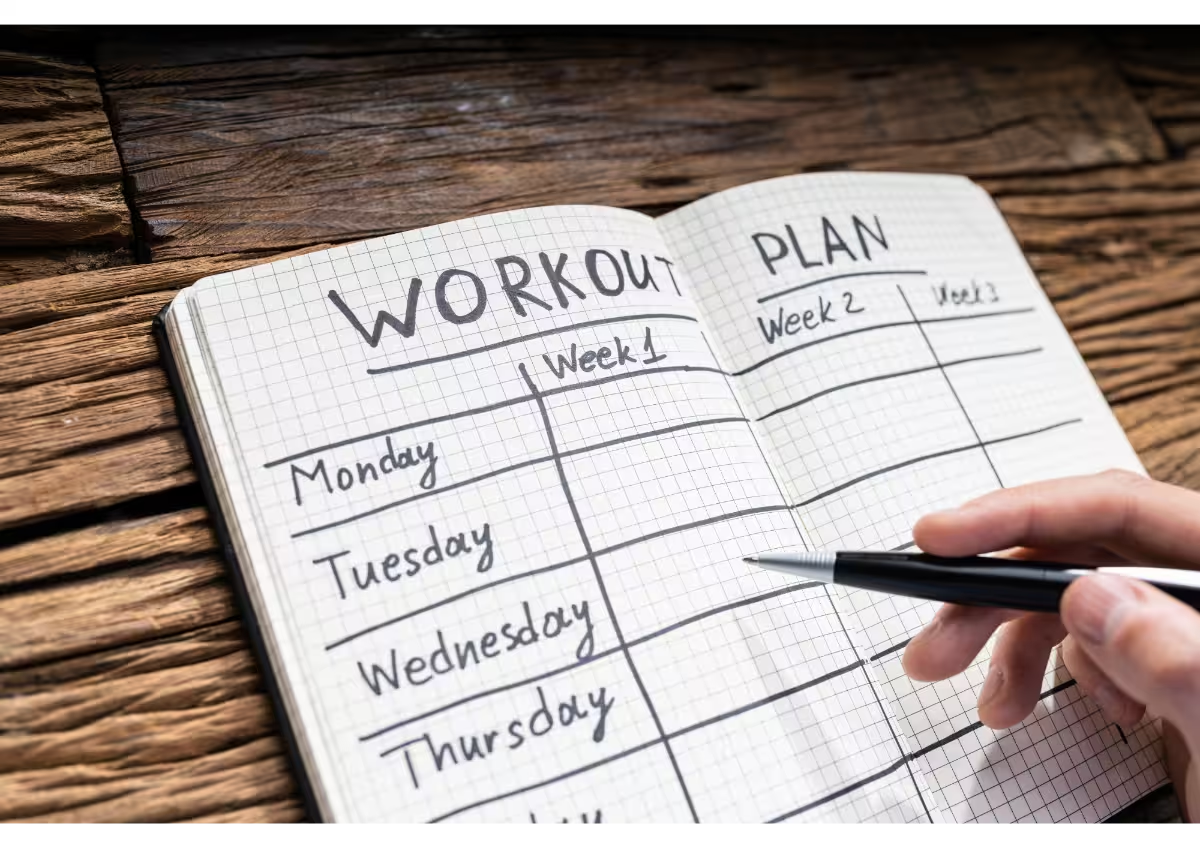How To Go From Half Marathon to Full Marathon
Introduction
Moving on from running a half marathon to conquering a full marathon is an exciting and challenging endeavor.
The increase in distance requires careful planning, dedication, and mental fortitude.
In this blog post, we'll guide you through the essential steps and considerations to successfully transition from a half marathon to a full marathon.
Whether you're an experienced half marathoner or a first-timer aiming for the full 26.2 miles (42,2 km), this guide will help you cross that finish line with confidence.

Why Run a Full Marathon?
Running a full marathon after completing a half marathon can be a rewarding and fulfilling goal for several reasons:
Personal Achievement
Completing a full marathon is a significant accomplishment that can boost your self-confidence and sense of achievement. It demonstrates your commitment, dedication, and determination to take on and conquer a challenging distance.
Physical Challenge
Training for and completing a full marathon requires a higher level of physical fitness and endurance compared to a half marathon. It presents an opportunity to push your limits and see what your body is capable of achieving.
Mental Toughness
Training for and running a full marathon can help you develop mental resilience and discipline. The longer distance challenges your mental strength, teaching you how to overcome fatigue, self-doubt, and other obstacles during the race.
Goal Setting
Working towards a full marathon allows you to set a long-term goal and break it down into manageable steps. The process of gradually increasing your mileage, cross-training, and managing your nutrition can teach you valuable goal-setting skills that extend beyond running.
Variety in Training
Training for different race distances introduces variety to your running routine. The increased mileage and diverse workouts can lead to overall fitness improvements and a deeper understanding of your body's capabilities.
Community and Camaraderie
The running community often provides a supportive and encouraging environment. Training for a full marathon can connect you with like-minded people who share your passion for running and provide motivation throughout your journey.
Travel and Exploration
Many full marathons are held in iconic locations around the world. Participating in a destination marathon can offer you the opportunity to explore new places while pursuing your athletic goals.
Personal Growth
Training for and completing a full marathon can be a transformative experience. It can teach you valuable lessons about perseverance, time management, and the importance of consistent effort—all of which can positively impact various aspects of your life.

How Long Does It Take To Go From Half Marathon To Full Marathon?
The time it takes to progress from a half marathon to a full marathon varies widely depending on factors like your current fitness level, running experience, training consistency, and individual goals. Generally, the transition can take anywhere from a few months to a year or more. Here's a rough guideline:
Novice Runners: If you're relatively new to running and have just completed your first half marathon, you should give yourself ample time to build up your endurance. You might aim for a full marathon 6 to 12 months after your half marathon.
Intermediate Runners: If you have a solid running base, regularly run longer distances, and have been consistently training, you might be able to progress more quickly. Training plans typically range from 16 to 20 weeks for marathon preparation. This assumes that you're already comfortable with running several times a week and have a good foundation of running fitness.
Experienced Runners: Runners who have completed multiple half marathons and are consistently logging higher weekly mileage might be able to transition to a full marathon within a shorter time frame, such as 3 to 6 months. These individuals are likely more familiar with the demands of distance running and can adapt more rapidly.
Remember that the transition should be gradual to minimize the risk of injury and burnout. Marathon training involves increasing weekly mileage, incorporating longer runs, and adapting to the mental and physical challenges of the longer distance. It's also recommended to consult with a coach or follow a structured training plan to ensure a safe and effective progression.
Ultimately, listen to your body, set realistic goals, and prioritize proper training, recovery, and injury prevention. Rushing the transition from a half marathon to a full marathon can lead to overtraining or injury, so finding the balance that works best for you is crucial.

How To Go from Half Marathon to Full Marathon?
Set Clear Goals and Expectations
Before you begin your training, define your goals for the full marathon. Are you aiming for a specific finish time, or do you want to focus on simply completing the distance? Setting clear goals will shape your training plan and help you stay motivated.
For a first full marathon, I recommend the goal of enjoying the experience and finishing while still feeling strong. Crawling over the finish line injured or completely exhausted is no fun.Choose the Right Marathon
Selecting the right marathon for your full debut is crucial. Consider factors like course terrain, climate, and elevation. If you're used to flat terrains, transitioning to a hilly marathon might be a significant challenge. Research different options and choose a race that aligns with your preferences and strengths.
Training Plan
There are so many training plans for a marathon, free to use on the internet. If you use one of those, choose one that starts where you're at in your training. It should include at least 3-4 runs pr. week, mixed with some strength training and interval/fartlek/drills. This is important to get faster, stronger and to avoid injuries.
Another possibility is to get a professional coach to create a personal program for your needs.
The time length of your training plan depends on where you're at physically and mentally. If you've been running for years and complete a half marathon regularly, you could go from a half marathon to a full marathon in as little as 4-5 months. On the other hand, if you went from couch to a half marathon fast and didn't have much exercise base beforehand, I would suggest you give your body more time to adapt to the sudden increase in workload and get stronger, e.g., 6-8 months.
You also need to consider your mental preparedness and how much time you have for weekly training.Gradual Increase in Mileage
Transitioning from a half marathon to a full marathon requires gradually increasing weekly mileage. Aim to increase your long run distance by about 1-2 miles (2-3 km) weekly. This incremental approach minimizes the risk of overuse injuries and allows your body to adapt to the increased demands.
It's also a good idea to have active rest weeks in between where you go fewer miles than the week before and then pick up after the rest week and continue to increase the mileage. This gives your body time to adapt and should leave you with more energy for the coming training weeks.Focus on Nutrition and Hydration
As you increase your training volume, pay close attention to your nutrition and hydration. Fuel your body with balanced meals, including carbohydrates, protein, and healthy fats. During long runs, practice your race-day nutrition strategy to ensure you're comfortable with what you'll consume during the marathon.
I like to have my own bottles of water and energy/electrolyte drinks so I won't have to stop at every water station during the race. Then I can take small sips throughout the race and only fill up my bottles once or twice along the way.
For nutrition during a race, I have come to terms with gels. I find it incredibly hard to chew food while running or walking fast, so I've given up on that (except in ultras). Initially, I found it hard to eat the gels, they made me gag, but I found some solutions. I bought a gel bottle; it's like a small water bottle but made for thicker liquids. I can put 2-4 gels in the bottle and add water to it, then it's no longer the thick gel consistency but rather like juice. Also, Some gels have a more watery consistency, like the "High 5" gels, and they also taste delicious, so those are my go-to gels.Long Runs and Time on Feet
The foundation of marathon training lies in the long runs.
Gradually build up to a few runs that mimic the marathon distance of 18-20 miles (29-32 km). These runs not only train your body but also prepare you mentally for the challenge ahead. Aim to spend more time on your feet during these runs to simulate marathon conditions.
The long runs should be your slowest runs so you can go on longer without fatigue. Speed and distance are practiced separately. Speed is practiced during shorter runs and incorporated into the marathon during the race.Mental Preparedness
Mentally preparing for a full marathon is as essential as physical training. Develop strategies to stay focused and positive during the race. Visualize yourself crossing the finish line and practice positive self-talk to overcome moments of doubt.
My go-to strategies are smiling to trick my brain into thinking I'm feeling good and saying to myself, "I am happy, and I feel good, I am happy, and I feel good."Recovery and Rest
As your training intensifies, prioritize recovery and rest. Include rest days in your training plan, incorporate foam rolling or stretching routines, and consider cross-training to reduce the risk of getting injured and prevent runners' burnout. Cross-training could be, e.g., cycling or yoga.
Tapering
In the weeks leading up to the marathon, taper your training to allow your body to recover and peak on race day but don't stop your training. Reduce your mileage while maintaining intensity to ensure you're well-rested and ready to perform.
Celebrate Your Achievement
Crossing the finish line of your first full marathon is an incredible accomplishment. Regardless of your finish time, take pride in your journey and the hard work you've put in. Celebrate your achievement and reflect on the growth you've experienced as a runner.